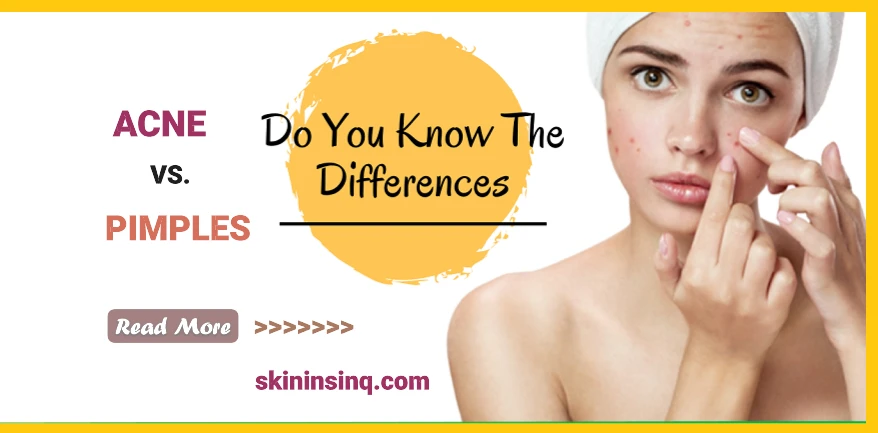What’s the Difference Between Acne and Pimples? Understanding the Key Distinctions for Better Skin Care
What’s the Difference Between Acne and Pimples? Understanding the Key Distinctions for Better Skin Care
“Acne” and “pimples” are terms often used interchangeably, but they’re not exactly the same. Understanding the difference can help you choose the right treatments and manage your skin more effectively.
1. Definition
-
Acne:
Acne is a chronic skin condition that occurs when hair follicles become clogged with oil, dead skin cells, and bacteria. It encompasses various types of lesions, including blackheads, whiteheads, papules, pustules, nodules, and cysts. -
Pimples:
Pimples are a symptom or type of lesion seen in acne. They usually refer to inflamed bumps filled with pus, commonly called papules or pustules.
2. Scope and Severity
-
Acne:
Involves a wide range of skin problems and can affect large areas such as the face, chest, back, and shoulders. Acne can be mild, moderate, or severe. -
Pimples:
Usually refers to individual or occasional breakouts. While pimples are part of acne, someone may get a pimple now and then without having full-blown acne.
3. Types
-
Acne Types Include:
-
Blackheads (open comedones)
-
Whiteheads (closed comedones)
-
Papules (small red bumps)
-
Pustules (pus-filled bumps)
-
Nodules (large painful lumps)
-
Cysts (deep, pus-filled infections)
-
-
Pimples Typically Refer To:
-
Papules and pustules – red or pus-filled bumps that are inflamed
-
4. Treatment Approaches
-
Acne Treatment:
Involves a long-term plan that may include topical creams (retinoids, benzoyl peroxide), oral antibiotics, hormonal treatments, or isotretinoin for severe cases. -
Pimple Treatment:
Often managed with spot treatments like salicylic acid, benzoyl peroxide, or tea tree oil.
5. Cause and Triggers
-
Acne:
Caused by multiple factors such as excess oil production, hormonal imbalances, clogged pores, bacteria, and inflammation. -
Pimples:
Typically caused by a temporary clog in the pore due to oil, dead skin, or bacteria.
Conclusion
In simple terms, acne is a skin condition, while pimples are one of its symptoms. If you’re dealing with frequent or severe breakouts, it’s important to treat the underlying acne rather than just individual pimples. A dermatologist can help diagnose the severity and recommend the most effective treatment plan for long-term skin health.

Related Blog
What Causes Oily Skin and Can It Be Managed Naturally? Exploring Root Causes and Gentle Solutions
Aug 2, 2025 by Admin
General
What Are the Signs That You Have Sensitive Skin? Key Symptoms to Help You Identify This Delicate Skin Type
Aug 1, 2025 by Admin
General